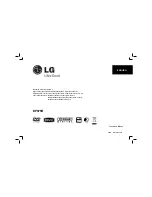
ORIGINAL INSTRUCTIONS > EN
7
Before connecting electrical devices to the generator, make sure that their
voltage specifications and frequency of functioning correspond to the technical
characteristics of the generator. There may be damage if the device connected is not
designed to function with a voltage tolerance of +/- 10% or a frequency tolerance of +/-
3 % compared with those of the generator.
Protection of the environment
You must periodically check the silencer (Before doing this, switch off the generator and
let it cool completely). A damaged silencer increases noise.
Do not throw motor oil into the drains but deposit it at a collection point set up for that
purpose.
The fuel for this machine is combustible and explosive. After stopping the machine, you
must handle the remaining fuel correctly and meet local environmental requirements.
FUEL SAFETY
DANGER!
GASOLINE, GASOLINE VAPORS AND LIQUID PETROLEUM GAS (LPG) ARE HIGHLY
FLAMMABLE AND EXPLOSIVE.
Fire or explosion can cause severe burns or death.
Unintentional startup can result in entanglement, traumatic amputation or laceration.
Gasoline and Gasoline Vapors (Gas):
GAS IS HIGHLY FLAMMABLE AND EXPLOSIVE.
— Gas can cause a fire or explosion if ignited.
— Gas is a liquid fuel but its vapors can ignite.
— Gas is a skin irritant and needs to be cleaned up immediately if spilled on skin or clothes.
— Gas has a distinctive odor; this will help detect potential leaks quickly.
— In any gas fire, flames should not be extinguished unless by doing so the fuel supply valve
can be turned OFF. This is because if a fire is extinguished and a supply of fuel is not turned
OFF, then an explosion hazard could be created.
— Gas expands or contracts with ambient temperatures. Never fill the gas tank to full capacity,
as gas needs room to expand if temperatures rise.
Liquefied Petroleum Gas (LPG):
— LPG IS HIGHLY FLAMMABLE AND EXPLOSIVE.
— Flammable gas under pressure can cause a tire or explosion if ignited.
— LPG is heavier than air and can settle in low places while dissipating.
— LPG has a distinctive odor added to help detect potential leaks quickly.
— In any petroleum gas fire, flames should not be extinguished unless by doing so the fuel
supply valve can be turned OFF. This is because if a fire is extinguished and a supply of fuel is
not turned OFF, then an explosion hazard could be created.
— When exchanging LPG cylinders, be sure the cylinder valve is of the same type.
— Always keep the LPG cylinder in an upright position.
— LPG will bum skin if it comes in contact with it. Keep any and all LPG away from skin at all
times.








































